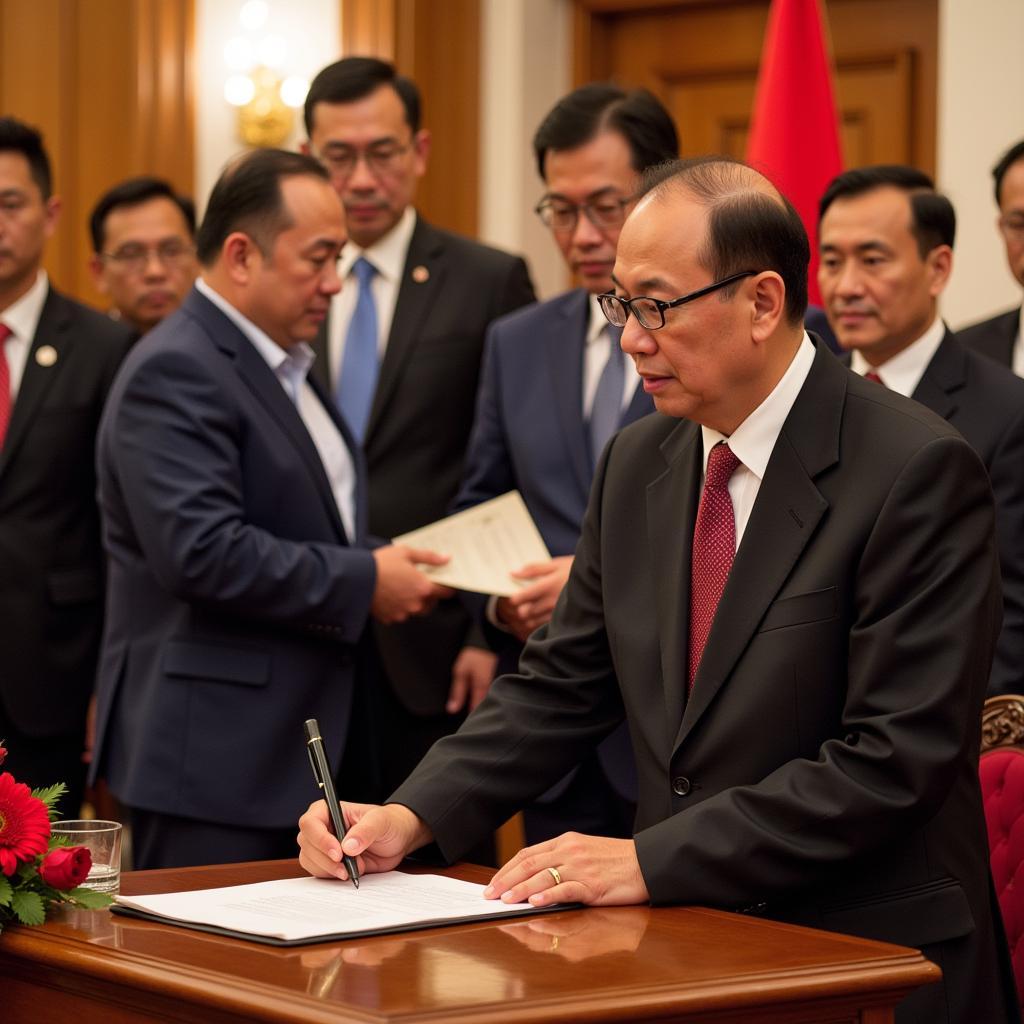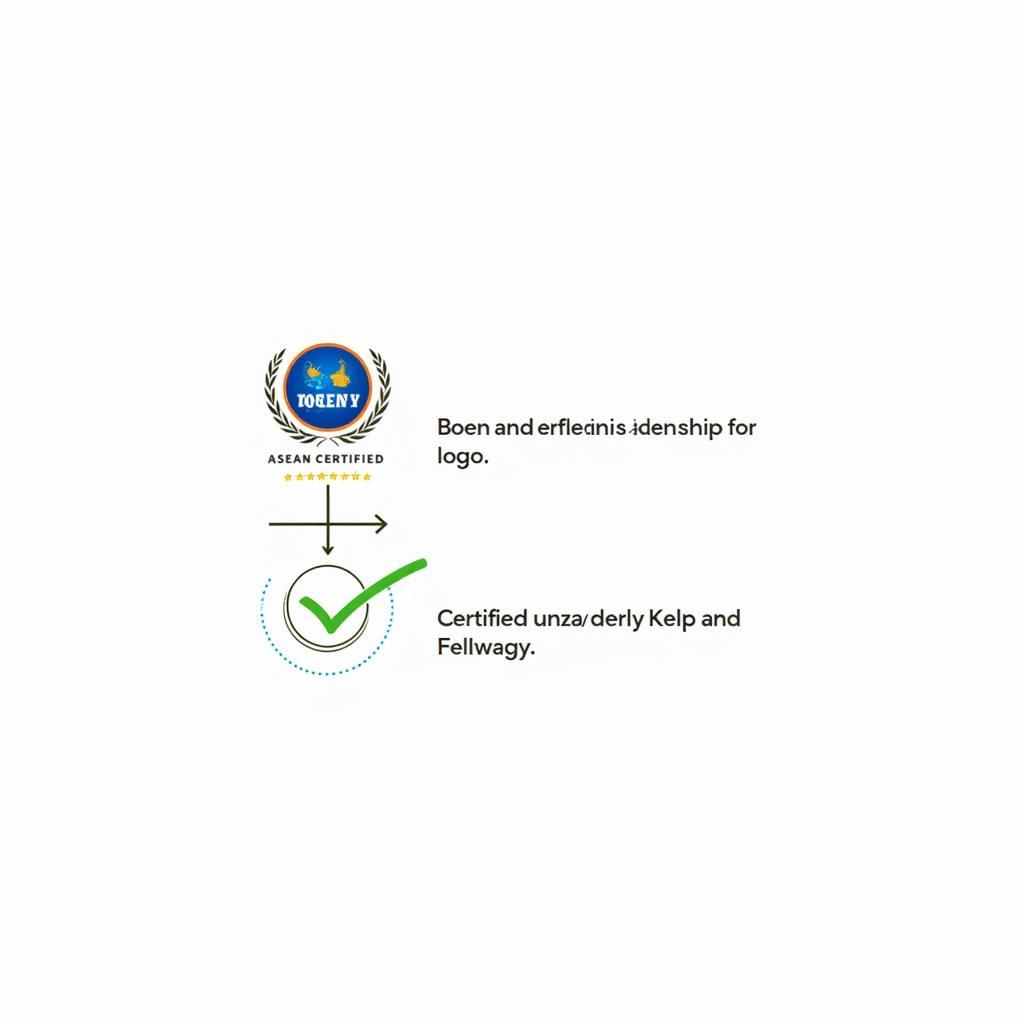Indonesia’s decision to join ASEAN was a pivotal moment in the country’s history, shaping its foreign policy and regional standing. But what were the driving forces behind this momentous decision?
 Indonesia's Foreign Minister Adam Malik signing the ASEAN Declaration
Indonesia's Foreign Minister Adam Malik signing the ASEAN Declaration
The Genesis of ASEAN and Indonesia’s Role
The Association of Southeast Asian Nations (ASEAN) was born in 1967 amidst a backdrop of Cold War tensions and regional instability. Indonesia, under the leadership of President Suharto, played a key role in its formation. Having recently emerged from a period of turbulent politics and economic uncertainty, Indonesia saw ASEAN as a platform to foster regional stability and cooperation.
Safeguarding National Interests Through Regional Cooperation
A primary driver for Indonesia’s involvement was the desire to safeguard its national interests by fostering a peaceful and stable regional environment. The memory of the Confrontation with Malaysia in the early 1960s loomed large, highlighting the potential for regional conflicts. Indonesia believed that ASEAN could serve as a mechanism for peaceful conflict resolution and regional security.
Economic Growth and Development: A Shared Aspiration
Beyond security concerns, Indonesia recognized the potential economic benefits of regional integration. ASEAN presented a platform to enhance trade, attract foreign investment, and promote economic development among member states. By joining ASEAN, Indonesia aimed to tap into regional markets and foster economic growth, which was crucial for its national development agenda.
Asserting Regional Leadership and International Influence
Indonesia, as the largest archipelago nation in Southeast Asia, has always harbored aspirations for regional leadership. ASEAN provided an avenue for Indonesia to assert its influence and play a leading role in shaping the regional agenda. By actively participating in ASEAN initiatives, Indonesia could promote its national interests and enhance its standing on the global stage.
The Principles of Coexistence: A Cornerstone of Indonesian Foreign Policy
Indonesia’s foreign policy has consistently been anchored in the principles of peaceful coexistence, respect for sovereignty, and non-interference in internal affairs. These principles, enshrined in the Bandung Conference of 1955, resonated with the core values upon which ASEAN was founded.
A Legacy of Engagement and Cooperation
Over the decades, Indonesia has remained a steadfast supporter of ASEAN, playing a pivotal role in its evolution and expansion. From promoting economic integration to addressing transnational challenges like terrorism and climate change, Indonesia has consistently demonstrated its commitment to the ASEAN project. Its active engagement has solidified its position as a central player in shaping the future of Southeast Asia.

